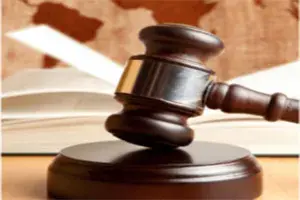By Nihit Nagpal and Anuj Jhawar
The Hon’ble Supreme Court vide its order dated May 04, 2022 in Ravinder Singh @ Kaku Vs State of Punjab1 has observed that a certificate under Section 65B(4) of the Indian Evidence Act, 1872 is mandatory to produce electronic evidence, and that submitting oral evidence in place of such certificate cannot possibly suffice.
Brief facts of the case
The Trial Court convicted three accused in a kidnap cum murder case and sentenced them to death for the offence punishable under Section 302 read with 120B of the Indian Penal Code, 1860 and rigorous imprisonment for 10 years and fine of Rs.5000/-each for the offence punishable under Section 364 of the Indian Penal Code, 1860. Allowing the appeal filed by two of the accused, The High Court of Punjab and Haryana, vide judgment dated February 22, 2011, acquitted Anita @Arti (A1) and Ranjit Kumar Gupta (A3) and partly allowed the appeal filed by Ravinder Singh @ Kaku (A2) although while setting-aside the death penalty, the High Court of Punjab and Haryana sentenced him to undergo rigorous imprisonment for 20 years under Section 302 of the Indian Penal Code, 1860. Challenging his conviction and sentence of 20 years, the present appellant Ravinder Kumar @ Kaku filed Criminal Appeal No. 1307 of 2019 @ SLP (Crl.) 9431 of 2011 before the Hon’ble Supreme Court. One of the issues raised before the Hon’ble Supreme Court was whether the call records produced by the prosecution would be admissible under Sections 65A and 65B of the Indian Evidence Act, 1872.
Judgment by the Hon’ble Supreme Court
The Hon’ble Supreme Court observed that the requirement for certification of electronic evidence has indeed not been complied with as contemplated under the Indian Evidence Act, 1872. The uncertainty of whether Anvar P.V. vs P.K. Basheer & Ors2 , occupies the field in this area of law or whether Shafhi Mohammad v. State of Himachal Pradesh3 lays down the correct law in this regard has now been conclusively settled by the Hon’ble Supreme Court by the judgement dated July 14, 2020 in Arjun Panditrao Khotkar vs Kailash Kushanrao Gorantyal4.
The Hon’ble Supreme Court observed that the electronic evidence produced before the High Court should have been in accordance with the statute and should have complied with the certification requirement, for it to be admissible before a court of law. The Hon’ble Supreme Court further observed that oral evidence in the place of such certificate, as is the case in the present matter, cannot possibly suffice as certificate under Section 65B(4) of the Indian Evidence Act, 1872 is a mandatory requirement of the law.
The Hon’ble Supreme Court held that the circumstantial evidence against the present appellant i.e. A2 does not conclusively establish the guilt of A2 in committing the murder of the deceased children. The last seen theory, the arrest of the accused, the recovery of material objects and the call details produced, do not conclusively complete the chain of evidence and do not establish the fact that A2 committed the murder of the children of PW5. Additionally, the argument of the Respondent that the call details produced relating to the phone used by A1 and A2 have established that they shared an intimate relationship and that this relationship became the root cause of the offence is also unworthy of acceptance.
CONCLUSION
To conclude, the tripod stand of Motive, Last Seen Theory and Recovery, that supported the conviction according to the High Court of Punjab and Haryana, was found to be non-conclusive and the evidence supporting the conviction was found to be marred with inconsistencies and contradictions, thereby making it impossible to sustain a conviction solely on such circumstantial evidence.
[1] Criminal Appeal No.1307 of 2019 [arising out of Special Leave Petition [CRL] No.9431 of 2011] with Criminal Appeal Nos. 1308-1311 of 2019 (arising out of Special Leave Petition [CRL] Nos.9631-9634 of 2012
[2] [(2014) 10 SCC 473]
[3] (2018) 2 SCC 801
[4] [ (2020) 7 SCC 1]
Related Posts
WHATSAPP GROUP ADMINS OFF THE HOOK FOR POSTS/COMMENTS BY OTHER GROUP MEMBERS


